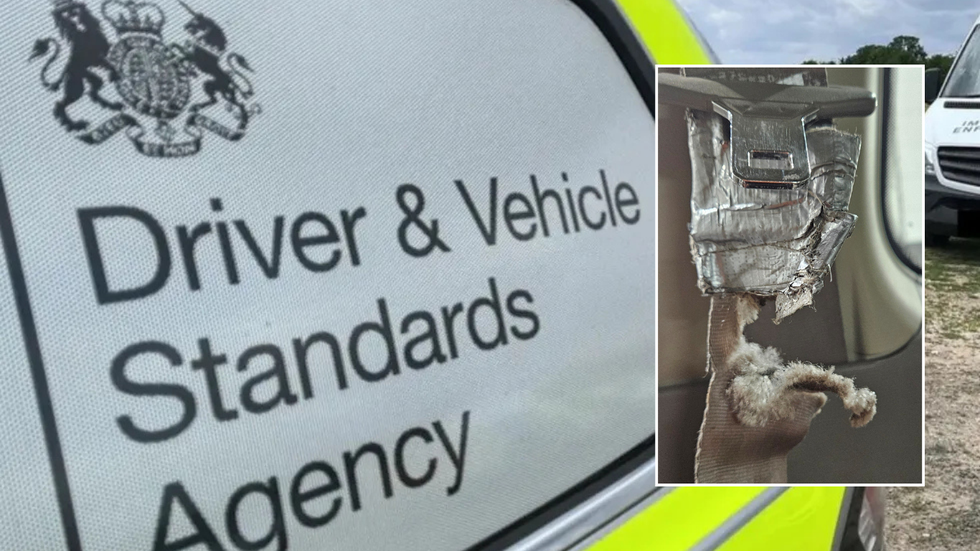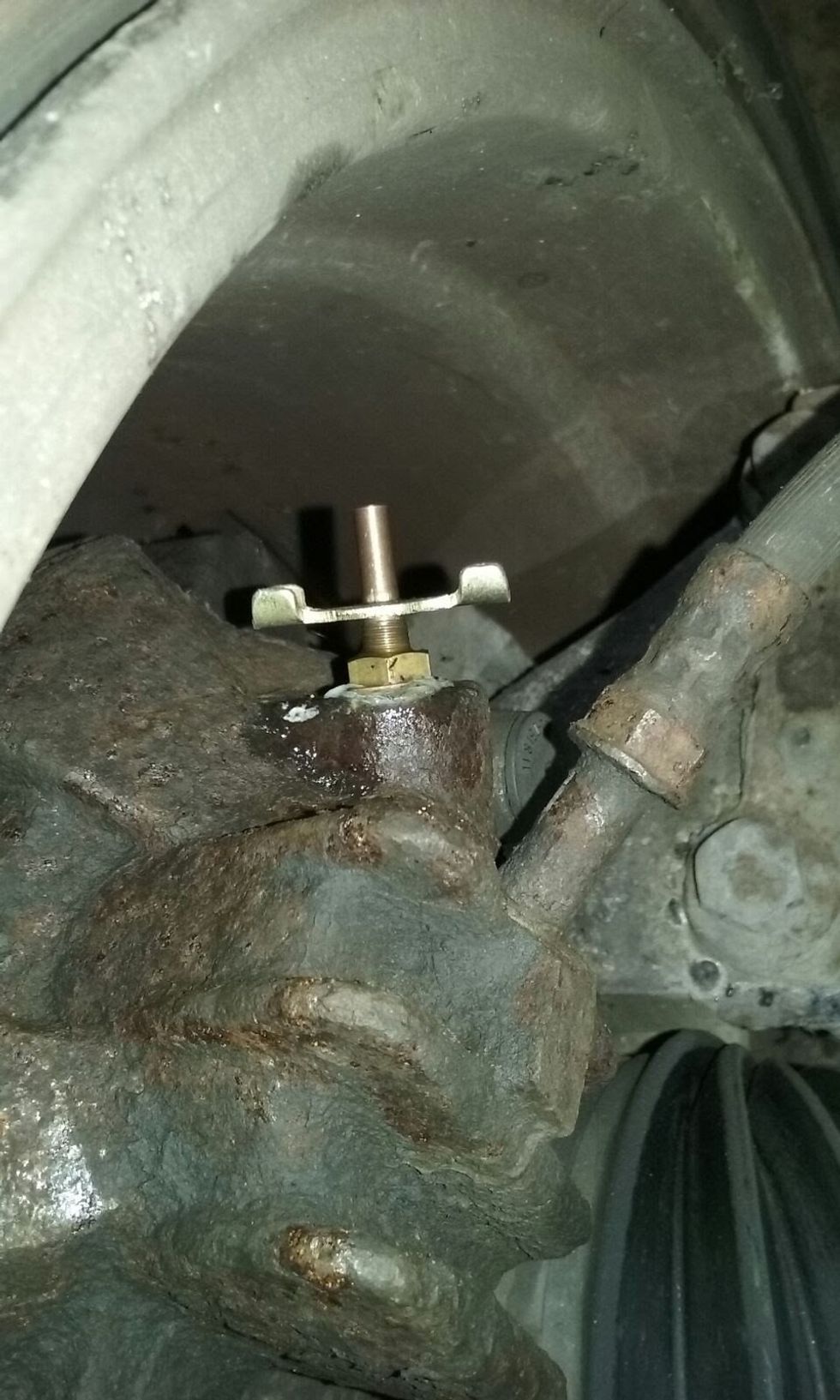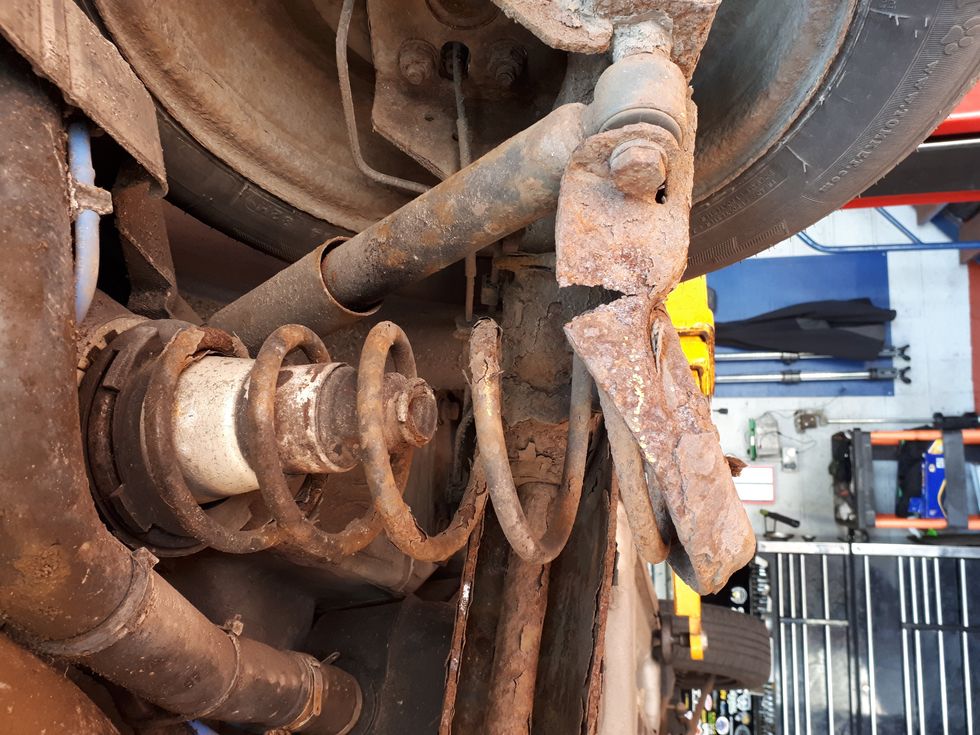DVSA issues major safety warning as 'extremely dangerous' safety breaches put Britons at risk on UK roads

The agency warned drivers to ensure their vehicles remain in roadworthy condition
Don't Miss
Most Read
Latest
The DVSA has issued a sharp warning to drivers to ensure vehicles remain in roadworthy condition after uncovering serious breaches in safety regulations.
The agency revealed that MOT testers throughout the UK have encountered terrifying examples of amateur vehicle repairs that pose severe dangers to road safety.
The agency discovered numerous breaches in vehicle safety during routine inspections, including safety equipment held together with adhesive tape and critical components replaced with unsuitable parts.
These botched repairs transform otherwise safe vehicles into potential hazards that could endanger drivers, passengers, and other road users.
The DVSA warned that while these findings pose serious risks to road safety, they could have potentially fatal consequences.
The agency stressed that regular maintenance and professional repairs are essential to prevent vehicles from becoming dangerous.
One MOT tester discovered a seatbelt that had been "repaired" using duct tape, a modification that would provide no protection during a collision.
The DVSA emphasised that seatbelts serve as the primary defence in accidents and must be replaced immediately if they show signs of damage, fraying, or stiffness.
The agency warned that attempting "do-it-yourself fixes" on safety-critical components can be extremely dangerous and will never meet the required safety standards.
Only qualified mechanics should replace faulty seatbelts to ensure they function correctly and protect occupants during an accident.

The agency recorded several safety breaches during annual MOT inspections
|DVSA
The agency warned that amateur repairs not only compromise safety but also guarantee MOT failure, resulting in higher costs when proper repairs become necessary.
Driving without a valid MOT certificate is illegal and unsafe, carrying potential fines of up to £1,000.
Another alarming discovery involved a fuel tank being supported by a fuse wire after its original mounting strap had corroded away.
This makeshift solution could easily result in fuel leakage and, with just a single spark, cause a catastrophic fire, the agency explained.
The DVSA stressed that fuel tanks must always be secured using manufacturer-approved fittings to ensure the safety of drivers and other road users.
LATEST DEVELOPMENTS:

The agency warned that vehicles found with defects on UK roads could be slapped with £1,000 penalties
|DVSA
The agency compared this to something from "Frankenstein's workshop", warning that incorrect parts could cause brake fluid leaks, pressure loss and complete brake failure.
These dangerous modifications would have been identified and properly repaired had the vehicles undergone MOT testing earlier.
Grant Thunder, DVSA's MOT Service Manager, stated: "Our MOT testers have seen some extremely dangerous vehicles that should never have reached the test centre.
"The safety risks are no joke; it's every driver's responsibility to make sure their vehicle is safe before driving."
Mr Thunder urged motorists not to wait until their next MOT to identify problems, but to incorporate safety checks into their regular routine.

Drivers were found to be fixing car problems themselves through homemade solutions
|DVSA
The DVSA emphasised that MOT tests help maintain road safety across the UK by ensuring vehicles meet essential safety and environmental standards.
The DVSA operates a free MOT reminder service that alerts motorists via email or text message 30 days before their test is due.
Vehicles must undergo MOT testing by their third anniversary of registration or annually thereafter if already over three years old, though some vehicles require testing after just one year.
The agency encouraged drivers to address strange noises, warning lights or other concerning signs immediately rather than waiting for their next scheduled test.











